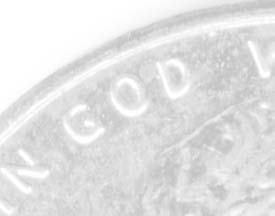I.O.U.S.A. (18 page)
Authors: Addison Wiggin,Kate Incontrera,Dorianne Perrucci
Tags: #Forecasting, #Finance, #Public Finance, #Economic forecasting - United States, #General, #United States, #Personal Finance, #Economic Conditions, #Economic forecasting, #Finance - United States - History, #Debt, #Debt - United States - History, #Business & Economics, #History
exceptionally low, there is noth-
most dramatically in those areas of
ing monetary policy or any central
the world which ordinarily save a
bank can do about that. All it can
great deal but were saving increas-
do is try to protect the system
ingly more. The effect of that was a
from being excessively affected by
what would be an irresponsible
major decline in long - term interest
policy on the part of the govern-
rates, which in turn have always had
ment.
the effect of lowering capitalization
—ALAN GREENSPAN
rates on real estate, commercial, and
on stocks and bonds, obviously.
Although Dr. Greenspan asserts that there is no way for the Fed to target all Americans
— especially the ones that
haven ’ t prepared for a rainy day — Fed decisions do directly impact all U.S. citizens. But not everyone is convinced that the Fed is blameless in the current state of U.S. economic affairs.
In an interview on
The Daily Show,
host Jon Stewart asked Dr. Greenspan about U.S. money supply and its effect on the economy.
Dr. Greenspan replied: “ The more money you have relative to the amount of goods, the more infl ation you have, and that ’ s not so good. ”
“ So, ” Stewart said, “ we ’ re not a free market then. There is an invisible, there is a benevolent hand that touches us. ”
“ Absolutely, you ’ re quite correct to the extent that there is a central bank governing the amount of money in the system. That is not a free market, and most people call it regulation, ” answered Dr. Greenspan.
“ And so, ” points out Stewart, moving in for the kill, “ when you lower the interest rate and drive money to the stocks, that lowers the return people get on savings. ”
“ Ah, yes indeed, yes indeed. ”
c03.indd 56
8/26/08 8:43:57 PM
Chapter 3 The Savings Defi cit
57
“ So they ’ ve made a choice, ” says Stewart, pithily, “ we would like to favor those who invest in the stock market and not those who invest in a bank. That helps us. ”
“ That, no . . . that ’ s the way it comes out, ” says Dr. Greenspan,
“ but that ’ s not the way it is. ”
Solutions
If the Federal Reserve is successful in carrying out its man-date of maintaining strong economic growth while keeping infl ation low, everyone can benefi t. However, if the economy grows but infl ation rises, people who have less income and self - worth will suffer more.
Americans must start to save again. And they need to invest those savings to help create a better future for themselves and their families. At the same time, Americans need to know that the money they are saving will hold its value.
Too much easy credit for too long can create a false sense of wealth, as we saw in the tech and real estate bubbles. No one plays a more important role in all this than the Federal Reserve.
c03.indd 57
8/26/08 8:43:57 PM
c03.indd 58
8/26/08 8:43:57 PM











